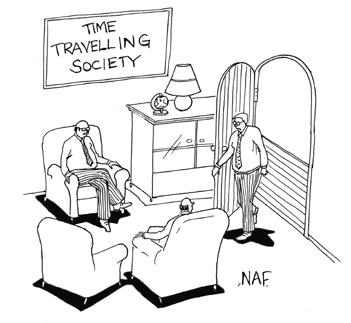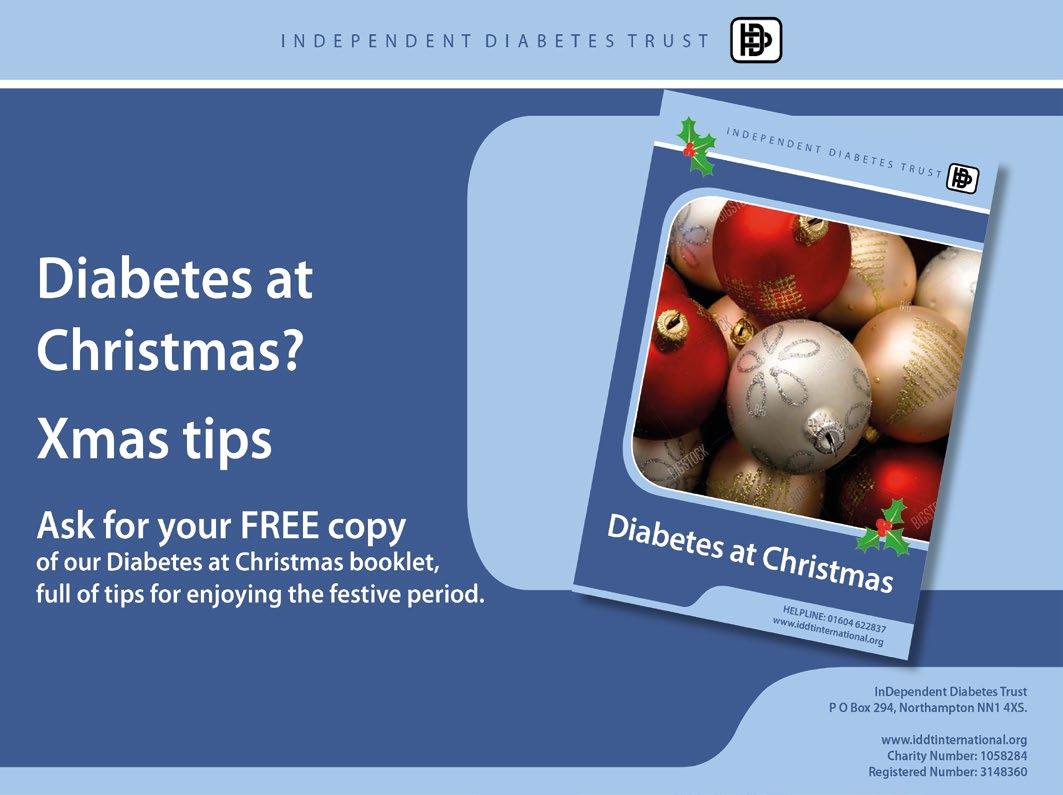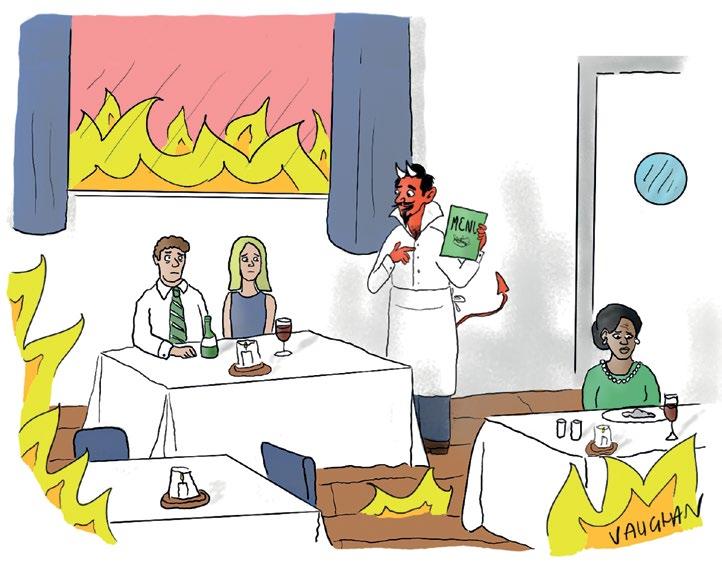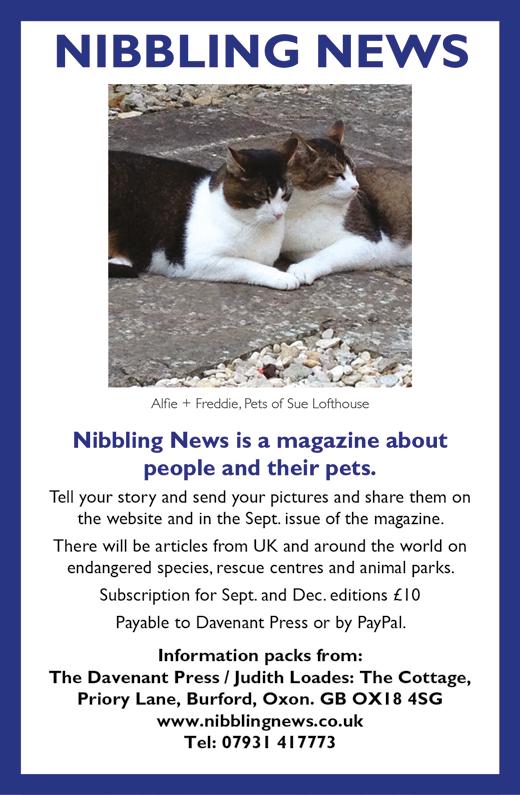
7 minute read
Sorrow and Bliss, by Meg
elaborate symbiosis. Say hello to your friend and you’re talking to an ecosystem. That’s worth knowing.
Pollan’s brilliant, compulsively readable book is an attempt to acknowledge and explicate this symbiosis. He examines, consumes and abstains from three plant substances – opium, caffeine and mescaline – telling us what it’s like to be on and off them. These three drugs, he contends, ‘hold up mirrors to our deepest human needs and aspirations, the operations of our minds, and our entanglement with the natural world’. He’s right.
Advertisement
To describe that entanglement involves much more than a diary of tripping and cold turkey. It demands a cultural, economic and political history of our liaison with the plants. Pollan’s story telling is deft, forthright and fascinating. We learn that opium preparations were as common in the Victorian medicine chest as aspirin is in ours; that poppy tea is served at Middle Eastern funerals to take away the sadness; that Nixon’s drug war was – explicitly and cynically – a proxy war on the anti-war hippies (represented by marijuana) and black Americans (represented by heroin).
‘Did we know we were lying about the drugs?’ asked John Ehrlichman, Nixon’s domestic adviser. ‘Of course we did.’
It makes you wonder what our current – highly selective – wars on ‘drugs’ are really about.
This potpourri of historical facts would itself make the book worthwhile. But it is mainly – and most absorbingly – concerned with the effect of these substances on individual human heads and identities.
Opium is the least interesting. Pollan’s home-brewed poppy tea ‘didn’t seem to add anything new to consciousness’, as many other drugs do. It merely subtracted melancholy, worry and grief.
Caffeine is an issue for most of us. That includes our children: most soft

Mid-1750s rococo at Powderham Castle, Devon. From Old Homes, New Life: The Resurgence of the British Country House by Clive Aslet, Triglyph Books, £50
drinks are caffeinated, and not for taste, but for buzz and addiction. Some 90 per cent of humans ingest caffeine regularly. You’re almost certainly an addict. When you drink your cup of coffee in the morning, the good feeling comes from mitigation of the withdrawal symptoms that have crept in overnight.
Caffeine is thought to have evolved in plants for two main reasons. It reduces the destructiveness of some insects by sending them haywire and making them vulnerable to predators; and it attracts some pollinators (perhaps making them addicted) and increases their memory of the caffeine-producing flower’s scent. But at a cost: caffeinated bees don’t forage as efficiently. They store less honey.
Caffeine makes us ‘faster but not smarter’. It boosts a particular kind of productivity – the kind associated with to-do lists and intense focus on an individual point. The kind associated with the destructive, nerdish, tyrannous left hemisphere. The kind that makes you lose sight of context.
It has certainly caused a breach with our own biology and with the non-human world. It rides roughshod over our circadian rhythms and the natural pace of things. Surely it is more than a coincidence, Pollan observes, that caffeine and the minute hand on clocks arrived at more or less the same historical moment.
Most interesting of all is mescaline, the product of various cacti, including peyote and the San Pedro cactus. It was mescaline that made the folds of Aldous Huxley’s trousers fascinating. It seemed to Huxley, as to Pollan, that mescaline disabled the valve that normally


turns the flood of data from the dazzling world out there to the measly trickle with which we construct our dreary, unsatisfying views of reality.
Mescaline made the moment incandescently beautiful and sufficient. This, Pollan decided, was how the universe really is. We’re dissatisfied with our usual view of reality because that’s not reality at all – and we intuit that it is not. We know we’re missing out.
Pollan leaves many questions hanging. Other than railing at the hypocrisy and incoherence of much of state regulation of psychedelics, he doesn’t preach or prescribe. So let me do that for him.
Opium is probably best kept as a prescription drug but the discretion to prosecute for possession should be wielded intelligently and sensitively.
And all incoming MPs and CEOs should be required to give up coffee and have a prolonged session on mescaline. and then increasingly horrid to Patrick, throwing things at him, a poor, exhausted, kind young doctor trying to do his best. She did warn him she was insane, but he replied, ‘Insanity is not a deal-breaker, if it’s you.’
We start to live inside Martha’s mind and feel what it’s like to suffer from an undiagnosed mental illness. ‘There isn’t day and night. There isn’t time. Only pain, and the pressure and the terror that is like a twisted cord running down the centre of your body.’ What on earth is wrong with her? Eventually a psychiatrist in Harley Street correctly diagnoses her illness as ‘– –’. It turns out that ‘– –’ runs in her family and her mother never told her.
That’s clever of Mason: by playing the illness as a blank ‘wild card’, she allows us to project our own mental disorders onto Martha’s. Whatever it is, it can make Martha rather tedious, self-obsessed company. Take this typical ‘I’-filled paragraph: ‘I have been loved every day of my adult life. I have been unbearable but I have never been unloved. I have felt alone and I’ve been forgiven for the unforgivable things I have done.’
Yet, through it all, she manages to be hilarious, and this is what makes the novel stand out. Perhaps because she’s so taken up with her own dark mind, she has neither the time nor the desire to do, read, see or learn complicated new things. So her hilarity is the hilarity of vagueness. When Patrick tries to teach her to play backgammon, she describes him ‘setting up the suitcase thing’. Yes! I’ll never look at a portable backgammon board again without thinking ‘the
OLDIE NOVEL OF THE MONTH Oxford blues
YSENDA MAXTONE GRAHAM Sorrow and Bliss By Meg Mason Weidenfeld & Nicolson £14.99
Love and depression in the age of emojis: Meg Mason’s second novel is an education in how all that works. The unhappy first-person protagonist, Martha, sends her sister, Ingrid, emojis of ‘the bathtub, the three-pin plug and the coffin’. Ingrid (the fertile one of the two) sends Martha ‘the eggplant, the cherries and the open scissors’.
But is it love? And is it depression? Martha’s ‘43-day starter marriage’, as she calls it, is a marriage of untrue minds from the start. I’ve no idea why she married the ghastly Jonathan, who picks up a bowl of sashimi from the conveyor belt at the Japanese restaurant, eats half of it and puts it back on the conveyor belt. And who always says ‘full disclosure’ before stating something really bland about himself.
Her second marriage, though: that really does seem to be love, but we learn from the beginning of the novel that this, too, will break up. Martha has known Patrick Friel since childhood when, as a neglected boarding-school boy, he used to come and spend Christmas with her cousins in Belgravia. He has always loved her, though at first he denies it.
They get married and move to an ‘executive home’ in Oxford, where Martha writes a food column for the Waitrose magazine. She is at first nice suitcase thing’. Browsing a psychotherapist’s website, she sees the question ‘What’s Worrying You?’ and scrolls down the drop-down menu. ‘I selected Other.’ Brilliant. No need for her to list the items on the ‘What’s Worrying You?’ list that she didn’t select.
Witheringly she sums up boring things or people she can’t be bothered to try hard to like. Such as an exhibition ‘of works by a photographer who only seemed to photograph himself, in his own bathroom’. Or of someone she met ‘at a charity dinner for a cause I can’t remember, even though the purpose of going was to have our awareness raised’.
I loved all that. And I loved Patrick’s sweetness in understanding that because Martha had started to watch a certain film, she would need to watch it to the end. ‘Because it was based on a true story, I obviously wanted to watch the entire thing, just for the words that come up at the end. Someone died aged 83. The painting was never found.’
Yes. I too relish ‘those words that come up at the end’ of films based on a true story. Then she and Patrick watch the baked-Alaska episode of The Great British Bake Off together, and I sighed with relief at this peaceful interlude. She uses the ‘speeded-up camera’ method to describe three years of their marriage passing: ‘a holiday, a leaking pipe, new sheets, happy birthday, a technician between 9 and 3…’.
It’s these flecks of universality that enhance this novel about one quite attention-seeking and often bewildering person.














